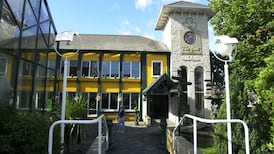The Republic's services sector continued to grow last month but the pace continues to slow, according to new figures.
The seasonally adjusted figure for overall business activity in the services sector was 55.8 in March, the tenth successive month of expansion in the NCB purchasing managers' index.
But, for the fourth month in a row, the rate of growth slipped.
Although any figure above 50 indicates growth, the March data show the index was at its lowest level since last August.
NCB chief economist Mr Dermot O'Brien said growth in the sector was clearly in positive territory, even if the pace had slowed. "It is encouraging to see employment accelerate to its best level since December," he said.
The Irish figures mirror the European trend in general, with a survey of 2,000 companies in the euro zone recording an activity figure of 54.4, down on the 56.2 recorded in February.
However, conditions in the US services sector improved sharply with the overall Institute for Supply Management index hitting a record high of 65.8, illustrating the growing gap between growth prospects in the US and the euro zone.
More than half of the 600 respondents to the Irish survey said business levels were the same in March as a month earlier. The number reporting an increase fell to 32.6 per cent from 39.7 per cent. However, there was also a fall in the numbers reporting weaker business, down to 15.6 per cent from 18.2 per cent.
The technology, media and telecoms sector reported the strongest level of current business at 64.3. It was also the only sector reporting an increase last month. Financial services also had a strong showing, with a figure of 62.8.
However, business services and the transport, travel, leisure and tourism sectors showed declines on the back of relatively weak levels of new business.Increased levels of new activity saw the level of business outstanding grow to 51.1 in March.
While input costs in the State had continued to rise, Mr O'Brien noted that competition had seen charges levied by the services sector falling for the twelfth successive month.
The squeeze on margins has not dented business confidence much. The indicator of prospects over the next year fell slightly from 78.7 in February to 77.3 in March, but almost 62 per cent of service businesses expected activity to grow in the months ahead. The optimism was attributed to encouraging levels of new business and a healthy level of inquiries.
Costs, which have risen consistently since the index was established in May 2000, were up again in March, reflecting rising oil prices and salary pressures.
But prices fell, as they have for the past year. Firms attributed the tighter margins to strong competition and a softening of demand in some sectors.
While the trend in Europe largely reflected that in the Republic, the euro-zone business confidence figure fell from 69.8 to 66.1. This was largely attributable to a general weakness in the German economy and a wary Spanish outlook following the Madrid bombings.
"The decline in the overall index in March reflects an already existent downward trend in growth of new business, which was exacerbated by the bombings in Madrid," said Mr Chris Williamson, chief economist at NTC Research, which compiles the survey for Reuters.
The survey collected data from service firms such as airlines, banks and retailers in Germany, France, the Republic, Italy and Spain, which account for 83 per cent of private sector services output in the 12-nation euro zone.










